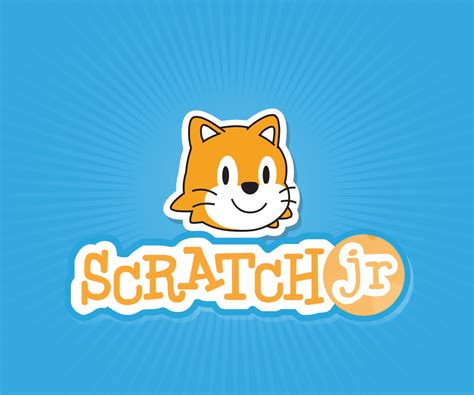
Before my family had a computer, I knew I wanted to program. I told that story in an earlier post. I’d like my kids to learn to code as well–but they’re growing up in a world very different from that of my childhood, and I haven’t been sure how to recreate for them the empowerment that I felt. I think I’ve found one “magic bullet” entree to the game, and am sharing a brief review of it and of several other resources.
BitsBox
First–our first BitsBox arrived yesterday, and our kids (7 and 6) love it! The company delivers a highly-scaffolded programming environment. The first project has the child type in two lines of code to draw a monster on screen, and then have him burst into flame on a tap. And then, there’s a question: can you make the monster dance instead of burning? And the learning begins.
What I’ve loved about our kids’ interaction with BitsBox so far is they’re exploring. One didn’t like the music that came with the first assignment, so I helped her figure out how to play something else instead (choose a different name from the library and use the song function). Another wanted the monster in another assignment to say something besides “peekaboo”. She tried sound(“hi, you”), but there wasn’t a sound by that name. But, text(“hi, you”) worked to display a message!
Most learning comes from wanting to accomplish something, and then figuring out how to do it. I’m ecstatic that BitsBox seems to be facilitating this kind of learning in our kids!
I hope that BitsBox adds layers of complexity as it progresses, but for the moment, it’s lovely. It even allows kid coders to share their apps with other people, via email or QR code scan. It’s a monthly subscription, our kids are excited about it, and therefore I’m excited about it, for now. I don’t have an affiliate arrangement with them, so no kickbacks are involved in this review. 🙂
Note that both of our kids are proficient readers, and comfortable with the idea of keyboards (though still slow, hunt-and-peck typists). Those are likely prerequisites to enjoying BitsBox, as is the occasional (though not extensive) involvement of an adult “coach”.
Robot Turtles
We got the Robot Turtles board game a while ago. The basic idea is similar to the old “Logo” programming approach: you create a set of instructions for a turtle to follow on its way to the prize. Except, in this case, there’s an adult, the “Turtle Mover”, involved, who “executes” the instructions (potentially including loops and maybe other constructs), making suitable dramatic noises as the turtle turns, moves forward, activates lasers to blast through ice walls, etc.
Our daughters enjoyed this game. I loved the idea. But the “problem space” felt a bit too simplistic, and–I’ll admit it–the role of the Turtle Mover doesn’t get more interesting with time. It still, though, might be worth a try for you. The pieces are lovely, and our daughters enjoyed it.
Lightbot and Lightbot Jr.
This is a great little “puzzle” game for mobile. You give instructions to a robot, which then executes them to turn on all the lights in a “board”. The boards, of course, increase in complexity as you progress, and new options and coding constructs become available.
Links:
- Lightbot Jr. for Android
- Lightbot for Android
- Lightbot for iOS
Scratch and Scratch Jr.
These are free programs to let kids play with programming. Scratch Jr. is completely graphical; Scratch includes some text, with substantial graphical elements. They’re terrific environments for free-form programming. Our kids have played with Scratch Jr., but haven’t tapped much of the potential, and I haven’t been equipped to guide them. I have a book from No Starch Press on the way that I hope will help me with that. (They also have books on Scratch.)
Other resources
Khan Academy has a course in programming that uses JavaScript and graphics extensively. CodeCombat is a paid subscription that includes a lot of scaffolding. CodeWizards HQ appears to have actual online classes for kids in programming. I haven’t tried any of these.
If you search for “teach children programming” or “teach children Python”, you’ll find an abundance of resources.
Your recommendations?
If you have personal experience with other resources for teaching kids to code, I’d love to hear about them in comments!
I don’t have any sources to suggest–just an affirmation that as long as your children are having fun doing it, I think having them learn coding is great. Even if they never earn money from it, they’ll have learned something that will get them farther down the road to a productive adult life.
LikeLike